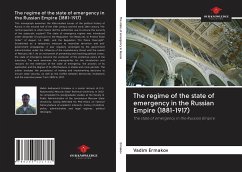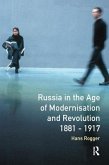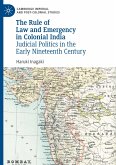This monograph examines the little-studied issues of the political history of Russia in the second half of the 19th century and the early 20th century. The central question is what means did the authorities use to ensure the security of the autocratic system? The state of emergency regime was introduced under Alexander III pursuant to the Regulation "On Measures to Protect State Order" of August 14, 1881, and the Regulation "On Police Oversight". Established as a temporary measure to neutralize terrorism and anti-government propaganda, it was regularly prolonged by the government administration under the influence of the revolutionary threat until the events of February 1917. As an instrument of preventing and resolving political crises, the state of emergency became the conductor of the protective policy of the autocracy. The work examines the prerequisites for the introduction and reasons for the extension of the state of emergency, the process of its application and the degree of its effectiveness in stable and crisis periods. The author analyzes the procedures of making and implementing decisions to ensure state security, as well as the conflict between democratic institutions and the executive power from 1905 to 1917.
Hinweis: Dieser Artikel kann nur an eine deutsche Lieferadresse ausgeliefert werden.
Hinweis: Dieser Artikel kann nur an eine deutsche Lieferadresse ausgeliefert werden.








